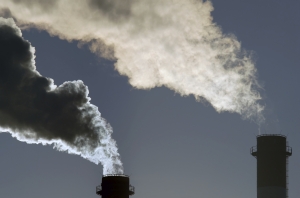In this update, we present our updated outlook for black and green wholesale electricity price in the NEM to 2030, accounting for current policy settings, along with scenarios for a “minimum CET” , assuming electricity emissions are reduced by 28% below 2005 levels by 2030; and a “2°C aligned CET” assuming a scaled up target aligned with the Paris Agreement.
Key findings include:
-
- In the absence of new energy policy, black wholesale electricity prices will continue to be heavily influenced by gas-fired generators due to a tighter supply-demand balance across the NEM. This is projected to lead to wholesale price rises, partially mitigated by large wind and solar investments subsidised by the LRET through 2020, with a significant price premium for green electricity driving a significant amount of wind and solar investment over the period to 2020-21.
-
- A Clean Energy Target (CET) is likely to reduce wholesale electricity prices from around $100 per megawatt hour (MWh) to between $40-60/MWh over the next decade. Lower wholesale electricity prices are driven by higher volumes of renewable energy supply, which is forecast to increase competition and decrease the influence of high gas prices in the NEM.
-
- The economics of the NEM are fundamentally working against baseload generation. Even should a CET (or other climate policy) not be introduced, coal-fired facilities are projected to continue to be retired, despite rising electricity prices. This is due to falling daytime power demand and changing economics of the grid, which now favours flexible supply.
-
- Investments in ‘baseload’ sources of power, irrespective of the CET, are therefore too inflexible to compete in Australia’s future electricity system. We do not envisage any appetite for HELE coal or other ‘baseload only’ facilities, such as Nuclear, unless there is a major government distortion in the market.
-
- Since baseload capacity is forecast to retire, ‘firm power’ rules could be established – whereby new generators must supply energy that can be dispatched – to maintain system reliability.
-
- Analysis indicates that renewable energy with storage continues to be the most economically favoured solution to generator availability. Modelling indicates that renewable energy – with storage – continues to be the cheapest source of reliable energy supply for peaking and load-following generation. Traditionally, gas-fired generation ($96/MWh) was the least cost source of supply for load-following and peaking services. High gas prices, however, are changing the calculation to make Wind ($80/MWh) and Solar ($85/MWh) with energy storage projects competitive in providing flexible generation.
-
- In this context, renewable energy remains attractive to the market given it is able to deliver energy reliability, with no emissions, at low cost prices.
To access this report, please login below. To register interest please click here >>














